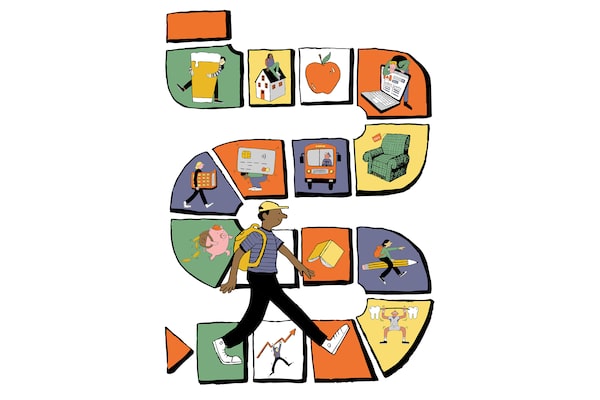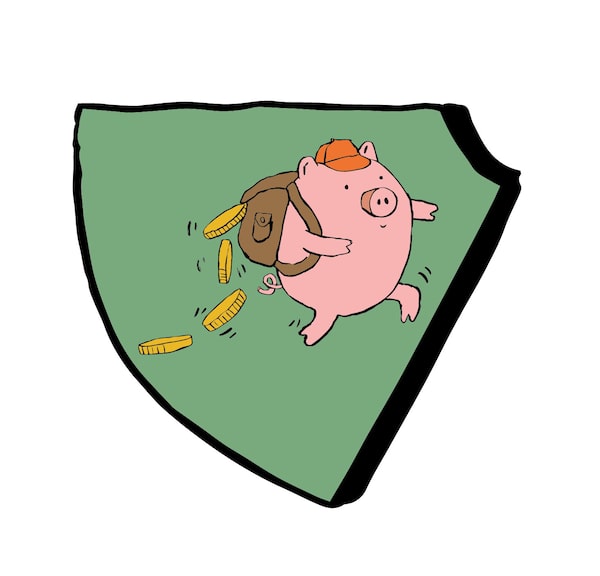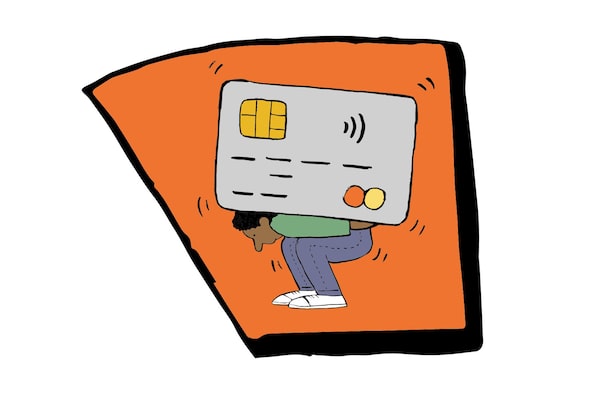
The Globe and Mail
It’s tricky to be a post-secondary student in 2023. Your family spent years saving for college or university. Now that the moment is here, higher inflation means everything is pricier than expected.
What’s a first year to do? Alongside the right mindset, you’ll need a crash course in personal finance. We’re here to get you started.
How parents can start smart money conversations with their university-bound children

Research has discovered that kids today are curious and motivated about managing money earlier than their parents were. And this same research shows that the financial habits of parents are, like it or not, passed down to their children.
As a result, kids who are taught money management by their parents are more likely to demonstrate healthy financial behaviours like saving and budgeting. They are also less likely to have student debt and a bad credit score.
Here are some tips for starting money-wise conversations with your teenager in preparation for their college years.
Living at home during college? Five smart things to do with the money you’re saving

Living at home may not be the most exciting way to go to college, but as the cost of living and rent skyrockets across Canada, there certainly are many financial advantages to staying with your parents.
In this article, we offer some tips on how to make the best use of the money you’ve saved by living at home, provided by Scotiabank’s Kingsley Chak along with suggestions from student staff and alumni from the financial assistance office at Toronto Metropolitan University.
Six financial tips for international students in Canada

Among the many challenges that international students face in settling in a foreign country by themselves, including adapting to a different culture and sometimes language, they also have to ensure they don’t fall behind on finances.
The Globe and Mail compiled a list of tips to help international students become financially responsible and set them up for success should they wish to remain in Canada beyond their studies.
Deal or dud? Here are the campus offers students should use — and avoid

Over the first few days of the new semester, the courtyards and hallways of campus will be lined with booths: clubs and societies to join, information on the healthcare clinic, political petitions to sign, banks flogging credit cards and telcos offering cellphone deals.
Some of these booths offer valuable deals worth taking advantage of. Others are likely to lead to increased spending and debt.
We asked financial planners to break down which deals to take advantage of and which to avoid.
Six things students should know about using financial aid to pay for school

Applying for financial aid can be a headache: It involves dealing with paperwork and often the fear around taking on debt.
But debt is increasingly becoming part of Canadians’ lives, and that isn’t necessarily a bad thing. Here are some tips for acing your applications for loans and grants.
Tips to eat healthy on campus despite food inflation

Students heading to university in September are facing food inflation that has pushed up prices on common grocery items by 19 per cent from a year ago. The temptation might be to eat less. Or eat cheap food with little nutritional value. Both can undermine health and ultimately affect grades.
We asked registered dieticians and certified financial planners for tips on how to ease the pressure on your wallet without sacrificing your health.
How to maximize tax refunds as a college student

Taxes aren’t the most exciting thing to think about as a new school year comes to a start. But Eric Wagner, a Turbotax expert and chartered professional accountant, says students who do their due diligence can get upward of $1,000 back as a result of filing a tax return.
We gathered some of Mr. Wagner’s advice on what you can do right now to maximize the money you get back at tax time.
How to have fun without going broke during university

You often hear it said that university will feature some of the best years of your life. Chances are, they’ll also be some of your most broke years.
There are all sorts of things to spend money on: clothes, entertainment, socializing with friends. But in order to stay out of debt and build good habits for your financial future, you need to set boundaries for yourself, too. Here are some tips to budget for fun without going broke.
How to start investing as a student

Turning 18-years-old usually means the beginning of financial independence. Now, you can finally use accumulated savings from part-time jobs, gifts and allowances to tap into the stock market on your own.
While it might be exciting to see your money grow for the first time, investing can also seem daunting, especially because it involves assuming some level of risk. We gathered tips from experts on how to dip your toes in the market without sinking.
These stories are the first of a nine-part series about personal finance for post-secondary students and their families. Subscribe to Morning Update to be the first to know when the next articles are available.
:format(jpeg)/cloudfront-us-east-1.images.arcpublishing.com/tgam/2BJSUIPL3ZEELB7P33BFN5S2U4.jpg)
Ready to get your finances in shape?
A new 5-part newsletter course to improve your personal finance skills, including budgeting, borrowing and investing. Taking the course? Tag us on Twitter (@globeandmail) using the hashtag #MoneySmartBootcamp.